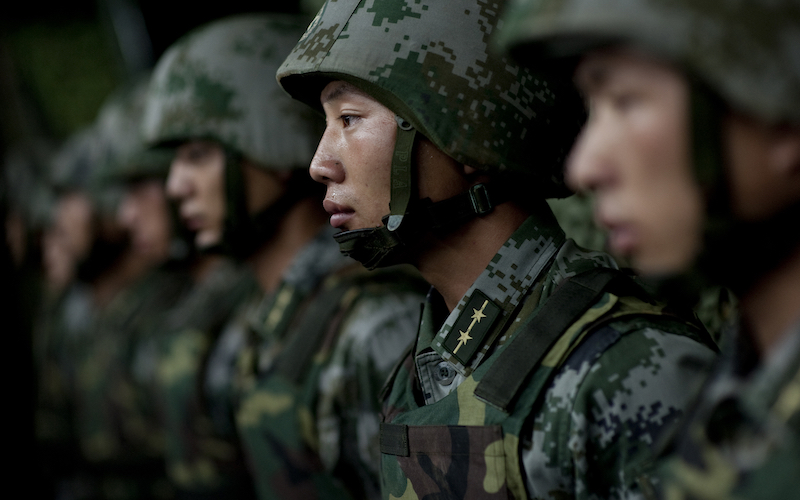
Securitizing China’s Interests: Can Chinese Private Military Contractors Replace the PLA?
China’s panoply of economic interests around the world (including in politically unstable regions) generates a set of security interests. China can hardly achieve energy and infrastructure securitization without carrying out physical securitization of Chinese workers who operate in areas of great instability. There is therefore an inevitable security (along with economic and political) dimension underlying the New Silk Road.
This securitization has been expressed, for example, in two of the operations that the People’s Liberation Army (PLA) has held abroad: to protect the Chinese merchant marine from maritime piracy in the Horn of Africa and to evacuate a large number of Chinese citizens from Libya in 2011. More recently, the inauguration of what will be China’s first military base abroad (in Djibouti) indicates an evolution of China’s non-interference policy. According to Pang, “China’s goal is not to abandon or replace the non-interference principle, but to improve its definition,” which explains the reason for “China [to adopt] a new approach that combines non-interference with conditioned intervention.” Thus, China’s non-interference policy is undergoing some changes, becoming more and more pragmatic in part in response to China’s needs under the New Silk Road.
To deal with the threats of instability and violence, highly harmful to the energy, commercial and logistical securitization of Chinese interests in the context of the New Silk Road, some Chinese experts have alluded to the possibility of China deploying private military companies. Chinese Private Security Companies (PSCs) growth has steadily accompanied China’s economic takeoff since the early 2000’s, and is presently a multi-billion dollar industry. As of 2013, there are 4,000 registered PSCs in China employing more than 4.3 million security personnel, but only about 20 PSCs have entered the overseas market. Although they aim to contribute to the New Silk Roads’ logistical, energy and commercial security, Chinese PSCs are not yet prepared for that role. There is also an additional issue, in that these can contribute to further increase the ‘Chinese fear syndrome’ that certain regions, such as Central Asia, have vis-à-vis China. Regardless of the complex debate around the use of Chinese PSCs, there’s no denying the concern of the Chinese Government to secure its interests, projects and lives of citizens abroad.
If in the past they mainly provided security services in Southeast Asia, Africa and Southern Africa, now many Chinese PSCs are focusing on countries along the land axis of the New Silk Road. State-owned companies prefer Chinese PSCs because – aside from language and cultural factors – they feel they can trust them and that they will safeguard any confidential state secrets that they learn. In Afghanistan, where Chinese firms hold key mining concessions, independent military analysts accuse the Chinese military (although they are not a hundred percent certain if it is the PLA or rather Chinese PSCs) of patrolling some critical points.
The recent revision of China’s military approach reflects a more assertive attitude regarding international issues. But how far can the pragmatic adaptation and greater flexibility on the non-interference principle go? Will Chinese private military companies tend to replace the PLA, or be its mere auxiliaries on the securitization of Chinese interests abroad? This author shares Duchâtel et al’s vision that within the contours of pragmatic adaptation, the intensity of change and the tangible results of the slow adaptation of the non-interference principle are still uncertain.
It is unlikely that the Chinese private security companies will replace the PLA in their security role – they can be complementary at most. For instance, in order to protect China’s interests in Central Asia (including the China-Pakistan Economic Corridor, as well as the major projects in Afghanistan), PLA members support private military firms to play a role in providing security if Chinese troops are not permitted to do so, and pushing the Shanghai Cooperation Organization to assume more responsibility in addressing the dual priorities of security and economic development. Particularly within the New Silk Road framework, any adaptation or move away from the Chinese principle of non-interference will tend to take place gradually, not suddenly or radically. The PLA’s role in protecting infrastructure abroad seems impractical in the short and medium term. However, it will depend on the international context, and China may need to react quickly if instability worsens in the countries it is working in. As Duchâtel et al have noted, the ‘unexpected events could precipitate change.’

